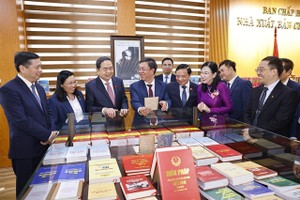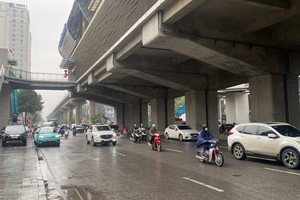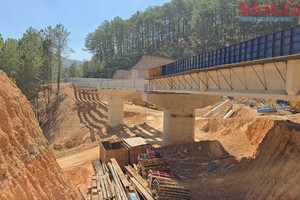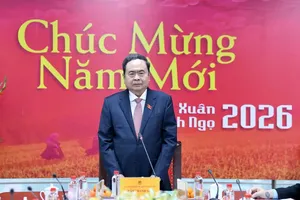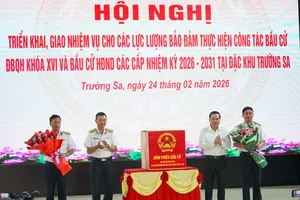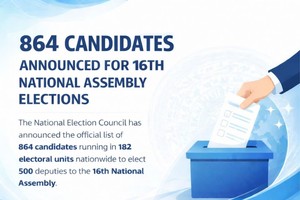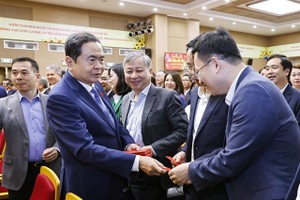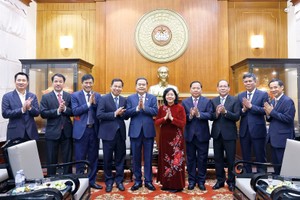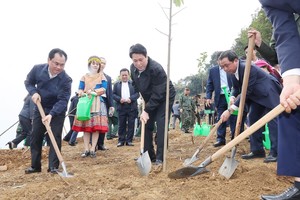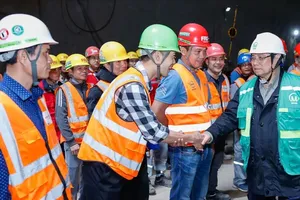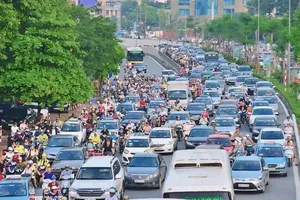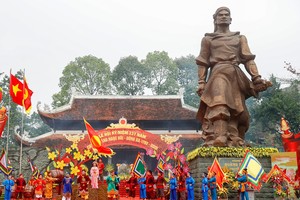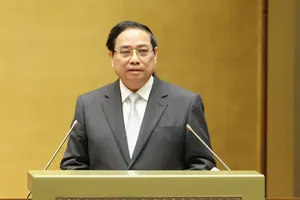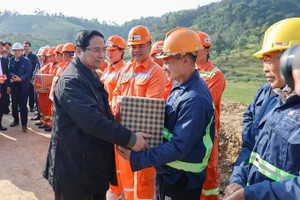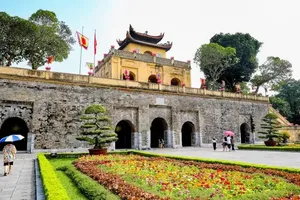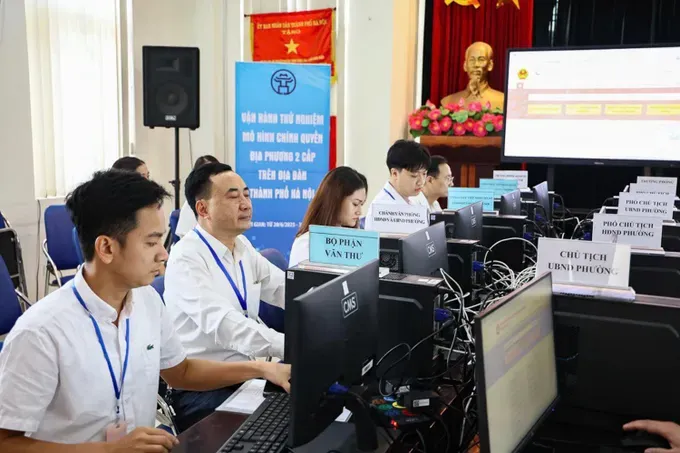
Observations at many newly consolidated wards and communes in Hanoi during these trial runs reveal a serious, methodical, and proactive spirit. The trials are focused on essential functions, ensuring seamless leadership across all domains, from public administrative services to Party and political system building, while caring for residents’ welfare and preparing all necessary facilities and working conditions.
At the new Kim Lien Ward in Dong Da District, officials have been arriving earlier, and citizens seeking administrative services are now guided attentively, with crowding and long waits eliminated. At the records reception office, procedures like certification and birth or death registration are processed swiftly.
“I was a bit bewildered at first”, shared 65-year-old resident Tran Thi Hoa, “but thanks to the dedicated guidance from the officials, everything went very smoothly.”
Beyond procedural efficiency, the new administrative team also proactively reviewed its IT infrastructure, allowing for the prompt resolution of any technical issues discovered during the trial.
Meanwhile, at the new Phuc Loi Ward in Long Bien District, Nguyen Thi Thanh Hang, who is expected to become the ward’s new Chairwoman, stated that her unit has set today, June 30, as the deadline to complete all information updates across the ward’s communication channels, ensuring all administrative procedures are ready for official operation tomorrow.
In the afternoon of June 27, the Standing Committee of the Hanoi Party Committee held a preliminary review of the first week of trials. The committee assessed that from June 20-26, all 126 new communes and wards had participated in a comprehensive, large-scale trial involving many unprecedented scenarios. Preparations, from personnel and infrastructure to contingency plans, were deemed sufficient to meet all operational requirements.
Hanoi has outlined the new structure for its reorganized commune and ward governments. Director Tran Dinh Canh of the Hanoi Home Affairs Department announced each new entity will feature three specialized departments, namely an Office of the People’s Council-People’s Committee, a Department of Economics-Infrastructure-Urban Affairs, and a Department of Culture and Social Affairs, alongside a one-stop inter-discipline public administration division.
To empower these new bodies, the city has decentralized 33 administrative procedures to the local level, supported by a new synchronized software system. Deputy Party Secretary Nguyen Van Phong added that this resolute implementation creates a significant opportunity for officials in the 126 new units to better leverage their skills and serve the needs of residents and businesses.
Beyond Hanoi, many other northern provinces have also begun trial operations after completing their own administrative consolidation and preparations.
In Quang Ninh Province, all 54 new wards, communes, and special zones have been conducting trials since June 15. The focus has been on reviewing processes, clarifying the decentralization of tasks, and testing new financial and document management systems. Provincial Party Secretary Vu Dai Thang emphasized that in-depth training for new local leaders has been a top priority to ensure they can quickly and effectively manage the new apparatus.
Vinh Phuc Province has also been testing the operations of its 36 new communes and wards via integrated IT systems, including video conferencing and document management software. They successfully test-ran online services, such as issuing certified copies of civil status records directly at the Public Administration Service Center, demonstrating the new model’s readiness.
The proactive and methodical approach taken by these localities demonstrates a creative spirit among grassroots officials and broad support from the public. This serves as a critical foundation for the smooth and effective official launch of the two-tier local government model across 34 provinces and cities on July 1.
Health Ministry clarifies new roles
In preparation for the July-1 launch, the Ministry of Health has issued Circular No. 20/2025/TT-BYT, which guides the functions and powers of specialized health agencies under the new two-tier local government model.
The circular affirms that the provincial-level Department of Health remains the specialized agency under the provincial People’s Committee, subject to professional guidance from the Ministry of Health. Each has its own legal status, seal and account according to the law; is under the direction and management of the organization, staffing, and activities of the provincial/city People's Committee; at the same time is under the direction, inspection, and guidance on professional expertise of the Ministry of Health.
The department of health has 30 tasks and powers, including the task of submitting to the provincial/city People’s Committee draft resolutions of the provincial/city People’s Council; draft decisions of the provincial/city People’s Committee related to the fields under the management of the department of health and other documents as assigned by the provincial/city People’s Committee.
Crucially, the circular stipulates that at the local level, the Division of Culture and Social Affairs will now be the specialized agency under the commune-level People’s Committee responsible for advising on and performing the state management of healthcare. It is also under the direction, inspection, and professional guidance of the provincial Department of Health.

